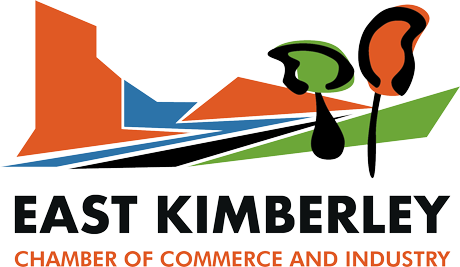Join our mailing list and stay up-to-date with news and events from East Kimberley Chamber Of Commerce and Industry.
About the Kimberley DAMA
Kimberley Designated Area Migration Agreement (Kimberley DAMA)
The priority for the EKCCI is always to promote jobs for Australians first. However, the EKCCI and East Kimberley industry have highlighted the need for improved access to overseas workers on a sustainable basis where occupations and positions are not able to be filled from the Australian labour market.
The Kimberley DAMA is an agreement between the EKCCI and the Federal Government that allows employers operating in the Kimberley region to access a broader range of occupations than standard skilled migration avenues, and with numerous concessions including experience, age, and in some cases salary and English, among others. These arrangements help employers attract and retain the right people to our region on a sustainable basis, where they have not been able to fill positions from the Australian labour market.
The Kimberley DAMA Designated Area aligns with the Local Government Area of the Shire of Wyndham East-Kimberley, The Shire of Broome, The Shire of Halls Creek, and The Shire of Derby-West Kimberley. Employers requesting endorsement must have operations in the Designated Area, and the position/s being sought must be located within the operations of the employer within the Designated area.
The Kimberley DAMA is accessible to all employers operating in the Kimberley region and is not exclusive to EKCCI members.
Some key Kimberley DAMA concepts
The Kimberley DAMA operates in a different way to standard skilled migration programs, using a labour agreement framework. This means that:
- An employer can obtain their own labour agreement, valid for five years, that includes:
- Pre-approval for one or more occupations and positions in a broad range of skilled and semi-skilled occupations, beyond the standard occupations shown in the programs;
- Concessions not available in standard programs, that provide incentives to attract and retain overseas workers to those positions, such concessions to age, English language, work experience (among others), and well-definted visa pathways.
- An employer does not need to have identified the prospective worker/s to access a Kimberley DAMA labour agreement:
- The employer may nominate (‘sponsor’) overseas workers already in their employ; or
- Attract suitably skilled and experienced overseas workers by having occupations and positions pre-approved, with concessions.
- The five-year Kimberley DAMA labour agreement can be varied based on changing business need, adding additional or new occupations and positions, or adding further concessions that are available if necessary.
Occupations and concessions under the Kimberley Designated Area Migration Agreement
The Kimberley DAMA occupation list is different to standard skilled migration programs and includes a range of concessions not accessible through those standard programs. To view or download the Kimberley DAMA Occupations and Concessions List, please refer to the ‘Accessing the Kimberley DAMA‘ page. Be sure to read the explanatory notes at the end of the list to learn what the concessions mean.
What is involved in accessing the Kimberley DAMA?
Accessing the Kimberley DAMA is a two-step process. Nominating individual workers against pre-approved occupation and position numbers under a Kimberley DAMA labour agreement involves a further two steps. The following diagram shows these four steps and who is responsible for each.

The employer requests endorsement from the EKCCI, as the Designated Area Representative (DAR) to access the Kimberley DAMA. Fully documented and well-presented endorsement requests are generally finalised by the DAR within five working days.
The employer then applies online to the Department of Home Affairs for a Kimberley DAMA Labour Agreement, using the endorsement letter from the EKCCI. This can take a number of weeks, however for an initial labour agreement (not a variation), the employer is generally able to nominate and submit visa applications for overseas workers for endorsed occupations and positions before the Kimberley DAMA labour agreement is finalised. **
A Labour Agreement, once signed, is usually valid for up to five years, and specifies how many occupation/s and position/s the employer can nominate in each year of the agreement.
There is provision to vary a Kimberley DAMA Labour Agreement throughout its life. If this involves adding or changing occupation/ and/or/position/s then that will entail the employer seeking EKCCI endorsement for those additions or changes.
NOTE: Steps 1 and 2 above are about the business need for the occupation/s and position/s, and not about prospective individual overseas workers even if they are already in your employ.
The employer can then nominate** specific individual Overseas Workers against the occupation/s and position/s stated in the Labour Agreement, up to the cap/s and within the year specified in that agreement.
The individual overseas worker/s may then be granted a temporary or provisional visa of up to five years. After two or three years (depending on visa pathway selected), the individual overseas worker/s may have access to a permanent visa. In limited circumstances the overseas worker may be nominated directly for a permanent visa (refer to the Kimberley DAMA Information Guide for details).
The final stage is the nominated individual/s visa application**, which includes criteria such as police checks, medical checks, and assessment against other criteria specific to them.
**Overseas workers who are in Australia may be eligible for a bridging visa in the interim depending on their individual circumstances. You should obtain professional advice or check with the Department of Home Affairs as an individual person’s immigration status or circumstances may, in some cases, prevent a successful nomination or access to a bridging visa. The EKCCI is not involved in any considerations around the individuals.
Accessing the Kimberley DAMA
For step-by-step details on how to request endorsement to access the Kimberley EK DAMA, and associated forms and details click below,
Support and advice about the Kimberley Designated Area Migration Agreement
The EKCCI is the Designated Area Representative (DAR) for the Kimberley DAMA. The EKCCI can provide information about how the Kimberley DAMA works and how you can access it. Outside of this remit, the EKCCI is not able to give you any immigration advice, such as whether you should or shouldn’t access the Kimberley DAMA, or about individual prospective workers and their visa matters.
Registered migration agents are authorised to give immigration assistance. It is an employer’s business decision whether to seek the advice or services of a registered migration agent, although there is no legal requirement that you must use an agent. The EKCCI is not able to recommend a registered migration agent, and you should do your own due diligence in seeking the services of an agent. The Migration Agents Registration Authority is the official portal and search facility for registered migration agents. If you encounter a registered migration agent who is not familiar with the Kimberley DAMA, you may direct them to this webpage or to the EKCCI for information.
Case studies
To help understand how the Kimberley DAMA works, click to open the following case studies.
XYZ Aged Care has a workforce of about 150 staff. Recently they have experienced high staff turnover due to factors beyond their control and are struggling to maintain the staff-resident ratios required by law. After advertising consistently and filling a few positions with Australians, but not all of the necessary positions, they request access to the Kimberley DAMA for 5 Enrolled Nurses, 10 Personal Care Workers, a Cook, and an Office Manager. They have requested age concessions to expand the potential pool of overseas workers and to attract experienced people who can aid in skills transfer.
After a week, the endorsement is approved by EKCCI and they submit a Kimberley DAMA labour agreement request with the Department of Home Affairs. The following week, they have identified two experienced and qualified Personal Care Workers in Melbourne and Perth whose visas are expiring soon, and one of whom is just past the age of 45 (cut-off age for standard skilled migration). XYZ Aged care immediately nominates the two individuals and submits their visa applications while waiting for the labour agreement to be approved.
A few weeks later the Kimberley DAMA labour agreement is approved. While still trying to source from the Australian labour market, the pre-approved positions with age concessions in the Kimberley DAMA labour agreement have attracted a broad range of prospective overseas workers to fill the skill shortage gap. Within 12 months XYZ Aged Care has filled all the positions approved in the labour agreement, which has assisted their business to remain viable and to provide the service standard required.
XYZ Aged care then requests endorsement for a further 12 positions across five different occupations to meet their needs in the following year, planning ahead for expected staff attrition.
Meanwhile, each of the overseas workers recruited under the Kimberley DAMA may have access to a permanent visa pathway after two or three years with XYZ Aged Care.
ABC Café operates in the Kimberley seven days a week. Because of the lengthy operating hours and constant clientele, the owners need a Café Supervisor who can take over the day-to-day running of the café and supervise service staff while they focus on the management and occasionally have some time off to focus on other business.
They have advertised locally and nationally and have not been able to find someone of the calibre and experience needed or who would be prepared to move to the region. They then find a backpacker from Spain, Angelica, who has restaurant supervisory experience and a qualification. They employ her in a full-time role and she has helped boost the level of service and increase the clientele, and allowed the owners to focus on their other business, but her visa will expire in a few months.
As Café Supervisor is not available in standard skilled migration programs and they can’t find an Australian who can or will do the job despite trying for months, they request access to the Kimberley DAMA for one position of Café Supervisor. They are endorsed by the EKCCI within five business days and then submit a Kimberley DAMA labour agreement request online to the Department of Home Affairs. Two days later the ABC Café owners lodge a nomination with Department of Home Affairs for Angelica as Café Supervisor, as well as her visa application.
A few weeks later the Kimberley DAMA labour agreement is approved, valid for five years. Angelica’s nomination and subsequent visa applications are approved allowing her to stay for four years, working for ABC Cafe.
A year later, the same happens in respect of the ABC Cafe and their need for a Cook, again with no success filling it from within the Australian labour market. They request to add a Cook position to their existing Kimberley DAMA labour agreement, which is approved, with an age concession and English concession. Although they hadn’t found a prospective nominee yet, the news that they have a pre-approved Cook position with concessions has reached numerous people, and they are approached by several prospective candidates. After identifying the most suitable one, Rico from Brazil, they then nominate him for a four-year temporary visa under the Kimberley DAMA.
Angelica and Rico each may have access to a permanent visa pathway after two or three years with ABC Café. Rico’s skills and experience has been instrumental in ABC Café’s ability to also take on a local apprentice Cook. Angelica has helped refine the service skills of the floor staff, adding a bit of Spanish ‘flair’ in the process.

